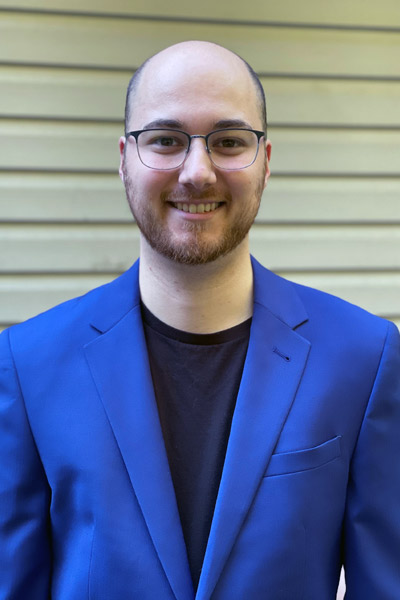INDS B.S.: Bioprocess Engineering

Fall 2021 Capstone
My INDS Degree
I first came to UMBC with the intention of studying Chemical & Biochemical Engineering and Biotechnology; however, not long into the semester, I realized that I was studying courses that did not translate into the biotech industry based on my own professional experience. One day over the summer break I was reading a book titled Bioprocess Engineering Basic Concepts by Michael L. Schuler. In the first chapter What is a Bioprocess Engineer? I realized I was in the wrong major. With this new realization, I was presented a challenge. How do I become a bioprocess engineer if there is no such major? I chose INDS because I was able to construct a degree that could accurately meet the role of a bioprocess engineer. This could not have been achieved without the aid of the INDS faculty and my faculty mentors, industry experts such as Dr. Antonio Moreira, former VP of Process Development and Manufacturing at Merck and Dr. Mark Schenerman, former VP of Analytical Biochemistry at MedImmune.
Post Graduation Plans
I plan to finish the remainder of my masters studies here at UMBC and will graduate with a Post-Bachelors in Biochemical Regulatory Engineering and an MPS in Biotechnology, completing both the regulatory and bioprocessing tracks. Soon after, I intend to begin my doctoral studies at the Jefferson Institute for Bioprocessing, where I will study Biologics Process Engineering. My INDS degree will provide a strong foundation for completing these studies, in addition to meeting admission requirements. At the same time, I intend to work in industry as a bioprocess engineer with the goal of reaching an executive position.
Courses In My INDS Degree
✅ Bioprocess Science/Engineering: In-depth study of key engineering and scientific principles found in commercial bioprocesses used in the food, pharmaceutical, & waste industries. Including process development, scale-up, facility fit, & commercial product goals under GMPs by assessing the impact of change on the process & product quality attributes, examining analytical & process validation issues critical to successful manufacturing in large scale operations, & addressing strategy on formulation development & stability.
(CHEM 351, 351L/MATH 225, 251/ BIO 273/BTEC 430, 453/ENCH 660, 662, 664, 666)
✅ Compliance for Regulatory Engineering: In-depth understanding of the FDA approval process required for the commercialization of a biotech-derived product. Courses focus on CMC team building and product development identifying requirements for IND, NDA, and BLA approval. Exploring pre-clinical safety data, clinical studies, facilities inspection, and scientific & regulatory principles.
(ENGL 393/BTEC 657/ENCH 660, 662, 664, 666)
✅ Managing Ethical Risk alongside Product Quality: Learning key concepts in ethical reasoning and engineering design to ensure product safety and quality. Understanding and responding to FDA warning letters and Form 483s issued to manufacturers for violations that lead to an adulterated product and how to develop corrective and preventive actions.
(PHIL 251/ENMG 664/ENCH 666)
✅ Individualized Study: This area of course work is required to progress through my degree plan and is integral to the design of my capstone project which seeks to integrate engineering and technology with ethical reasoning.
(INDS 330, 335, 430, 480, 490)
5/12/2023